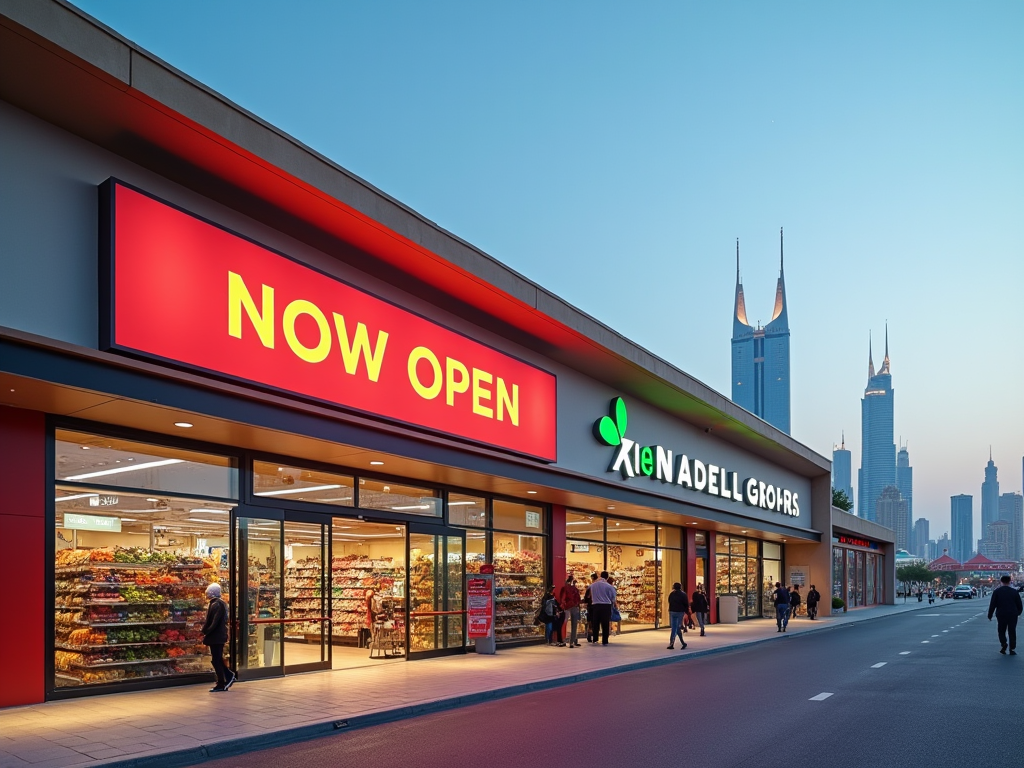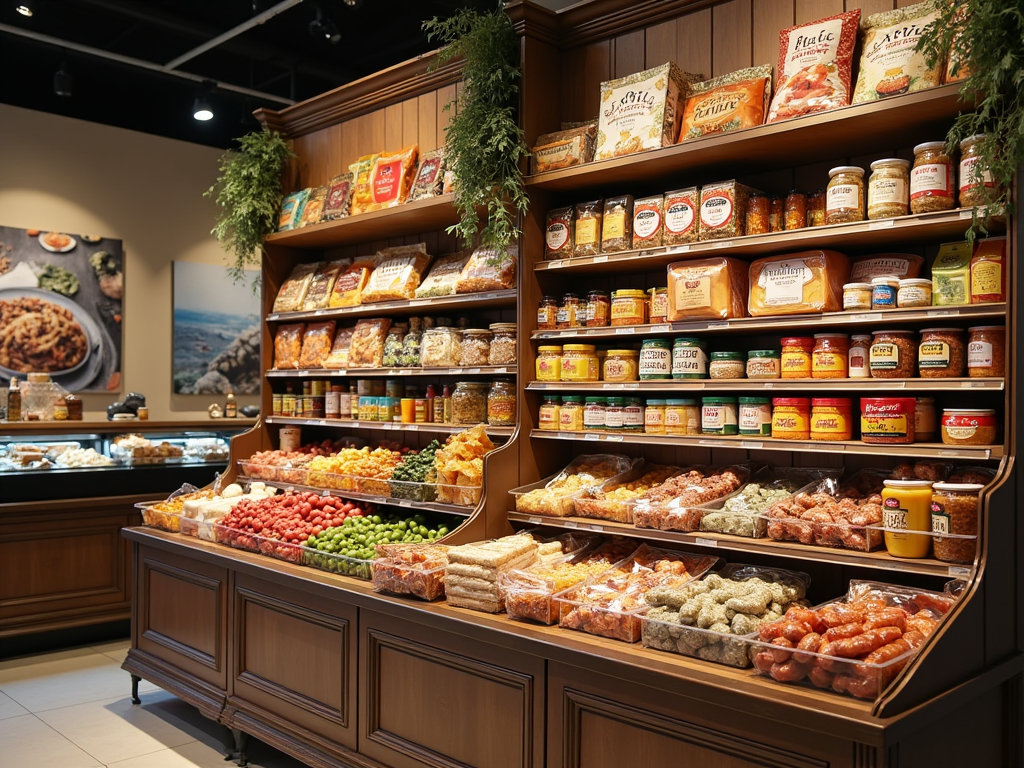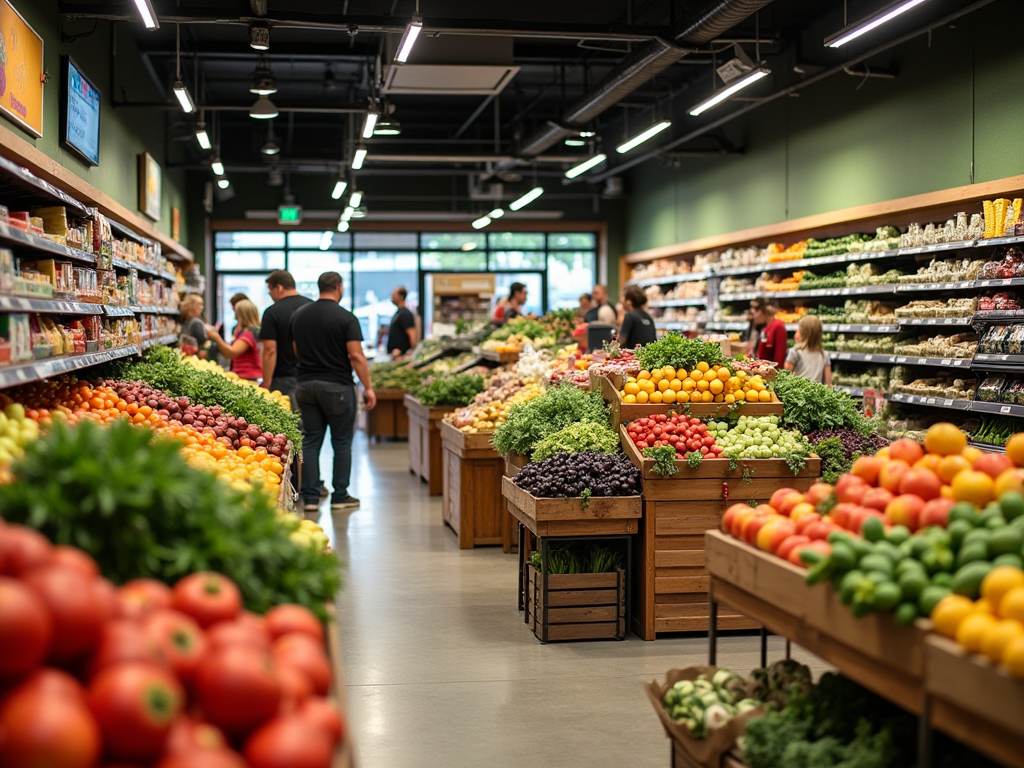Opening a grocery store in Dubai can be a lucrative venture, given the city’s diverse expatriate population and growing demand for various products. With careful planning and adherence to local regulations, you can establish a successful grocery store. This guide will lead you through the essential steps to kickstart your business in one of the most dynamic cities in the world.
Understanding the Market

Before diving into the logistics of opening your grocery store, it’s essential to conduct comprehensive market research. Understanding your target audience helps tailor your product offerings. In a multicultural city like Dubai, grocery stores often cater to a range of nationalities, each with unique preferences. Popular products include various international foods, fresh produce, organic items, and halal products. Additionally, you should delve into competitor analysis to identify gaps in the market that your store could fill. Here are a few points to keep in mind:
- Identify your target demographics.
- Assess the buying habits and preferences of potential customers.
- Analyze existing grocery stores and their offerings.
- Explore emerging trends in the retail and grocery industry.
Choosing the Right Location

The location of your grocery store plays a critical role in its success. Dubai offers various neighborhoods suitable for grocery retail, from residential areas to bustling business districts. Factors to consider when selecting a location include foot traffic, accessibility, visibility, and proximity to competitors. A strategic location will enhance your store’s reach and customer base. Furthermore, assess the rental costs and local zoning regulations to ensure compliance with local laws. Here is a checklist to consider:
- Determine your budget for rental expenses.
- Explore areas with high demographic potential.
- Evaluate the accessibility for both pedestrians and drivers.
- Research the availability of parking facilities.
- Check for compliance with local zoning regulations.
Once you’ve pinpointed a location, the next step is to register your grocery store with the relevant government authorities. In Dubai, businesses must secure a trade license from the Department of Economic Development (DED). The process involves several steps, including deciding your business structure, obtaining approvals, and paying necessary fees. The following steps outline the registration process:
- Select a unique business name.
- Choose the appropriate business structure (LLC, sole proprietorship, etc.).
- Submit your application to the DED.
- Obtain a commercial license, with specific conditions applicable to grocery retail.
- Register with the Dubai Chamber of Commerce.
Inventory and Supplier Management
A successful grocery store relies heavily on effective inventory and supplier management. Start by curating a diverse product selection that caters to the tastes of your target audience. Develop relationships with reliable suppliers who can provide quality products consistently. Sustainable sourcing and seasonal considerations may also influence your inventory decisions. Make use of technology to streamline inventory management and ensure stock is adequately replenished. Consider these aspects when managing your inventory:
- Establish long-term partnerships with quality suppliers.
- Utilize inventory management software to track stock.
- Offer a mix of local and international products.
- Have a clear policy for managing perishables and returns.
Marketing Your Grocery Store
Once your store is set up, effective marketing is essential to attract customers. Leverage both online and offline marketing strategies to build a solid customer base. Engage with the community through promotions, social media, and local events. Consider offering loyalty programs or discounts to cultivate return customers. Effective marketing strategies include:
- Creating a professional website and social media profiles.
- Implementing promotional campaigns and discounts.
- Organizing community engagement events.
- Emphasizing unique selling points, such as organic products or regional specialties.
Conclusion
Opening a grocery store in Dubai entails thorough market research, strategic selection of location, proper business registration, efficient inventory management, and impactful marketing strategies. By carefully navigating these steps, you can develop a thriving grocery store that caters to the diverse needs of Dubai’s population. Make it a point to stay adaptable to market trends, as consumer preferences can shift rapidly, particularly in such a cosmopolitan environment.
Frequently Asked Questions
1. What is the cost to open a grocery store in Dubai?
The cost of opening a grocery store in Dubai can range significantly. Factors such as location, size, and product range will impact total expenses. On average, total costs may vary from AED 100,000 to AED 500,000 or more, depending on these factors.
2. Do I need a local partner to open a grocery store in Dubai?
It depends on the business structure you select. For foreign investors wanting to own a business in Dubai, having a local sponsor or partner is often required unless you choose to operate within a Free Zone.
3. What licenses are required to open a grocery store in Dubai?
You will need a trade license from the DED, which permits you to operate a retail business. Additionally, you may need a food license if you plan to sell food and beverages.
4. How can I attract customers to my grocery store?
Attracting customers can be achieved through effective marketing strategies such as promotions, loyalty programs, quality product offerings, and social media engagement. Building a strong community presence also helps in drawing customers.
5. Is market research necessary before opening a grocery store?
Yes, market research is crucial. It helps you understand customer preferences, identify market gaps, and inform your product selection strategy, ultimately leading to a successful grocery store launch.
